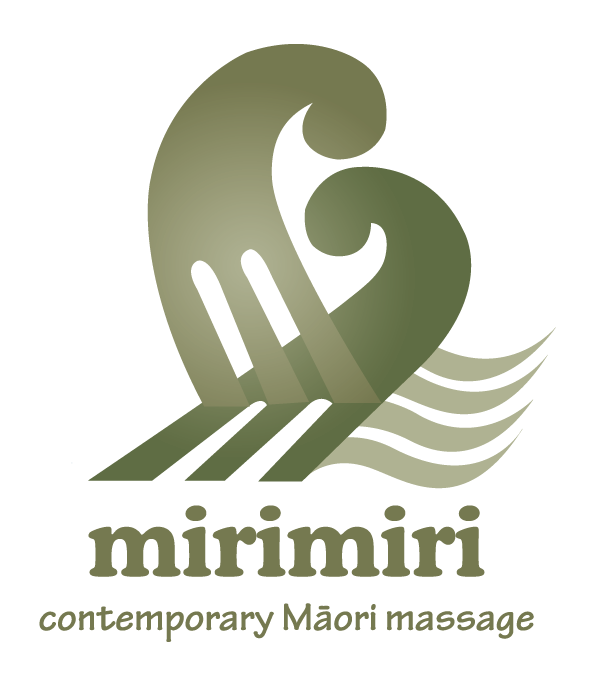-
Mirimiri is the traditional holistic healing massage technique of the Maori, the indigenous people of Aotearoa / New Zealand. My unique massage style combines aspects of both traditional and modern worlds, utilizing Maori mirimiri, sports, deep tissue, trigger point, pre / post natal and stress reduction techniques.
-
Mirimiri is fully funded with no surcharge. If support for your injury is covered by ACC, you can request rongoā Māori as part of your rehabilitation. You will need to request for me specifically, my ACC vendor number is VBI208. Request this through the ACC recovery team member who's managing your claim, or contact ACC on:
Phone 0800 101 996
Email claims@acc.co.nz
Or through the online service MyACC:
All sessions need to be prior approved.
-
Mirimiri improves circulation by bringing oxygen and other nutrients to body tissues. It relieves muscle tension and pain, increases flexibility and mobility, and helps clear lactic acid and other wastes, which reduces pain and stiffness in muscles and joints.
-
People have mirimiri for relaxation or for a variety of health condition:
Back pain
Inflammatory conditions such as arthritis and tendonitis
Stress reduction and stress related conditions
Headaches and migraines
Muscle related conditions such as spasms, strains and sprains
Repetitive strain injury, such as carpel tunnel syndrome and OOS
Circulatory and respiratory problems Post-injury and post surgical rehabilitation
Pre/post natal
Mirimiri relieves stress. It is thought to help the body’s stress response by lowering levels of hormones such as cortisol. Mirimiri also appears to enhance immune function.
-
A typical mirimiri session is between 1 hour and 2 hours. Your mirimiri will begin with a brief consultation and review of symptoms, medical history and lifestyle.
You will be asked to undress to what you are comfortable in (while I’m out of the room), lie down under a sheet on a padded massage table.
You then use a buzzer to indicate to me that you are ready. I re-enter the room and will then adjust the face cradle, bolsters, and pillows to ensure that you are comfortable and properly positioned. Tell me if you are too warm or cold.
The mirimiri starts and finishes with karakia (traditional prayer/intent) and acknowledgement of the ancestors.
I use apricot oil (unscented) on the skin and begin the mirimiri. You are underneath the sheet (males have towel across) at all times, only the part of the body being treated at any one time is uncovered. A hot clay pack wrapped in a towel will be applied during the mirimiri.
After the mirimiri, I leave the room so you can get changed.
Take your time getting up. If you sit or stand too quickly you may feel lightheaded or dizzy.
The mirimiri concludes with an invitation to select a card. Wisdom of the Four Winds cards are not predictive, they merely allow us to pause and look at our situation with the help of the kaitiaki or guide who arrives by chance, through the blind pulling of a card.
Everything and everyone has a spiritual home. In the Maori world of Polynesia it is known as our Tu-ranga-wae-wae, ‘the place where we stand tall.’ That ‘sanctuary’ may or may not be our birthplace, as its power is of many realms. Wisdom of the Four Winds has its spiritual home in Aotearoa New Zealand, a unique gift to the world.
-
Mirimiri shouldn’t hurt .Occasionally there is a mild aching when I apply pressure over “knots” and other areas of muscle tension. If the pressure is too strong for you, let me know.
-
Most people feel calm and relaxed after a treatment. Some people may experience mild temporary aching for a 24hr to 72hr period following a deep tissue mirimiri.
-
Mirimiri is not recommended for certain people:
People with infectious skin diseases, such as rash or open wounds
Immediately after surgery
Immediately after chemotherapy or radiation, unless recommended by your doctor
People prone to blood clots. There is a risk of blood clots being dislodged. If you have heart disease, check with your doctor before having a mirimiri
Mirimiri should not be done directly over bruises, inflamed skin, unhealed wounds, tumours, abdominal hernia or areas of recent fractures.
-
Don’t eat a heavy meal before a mirimiri
If its your first time, please arrive 5 minutes earlier
Drink plenty of water after the mirimiri to flush out toxins released during the treatment

